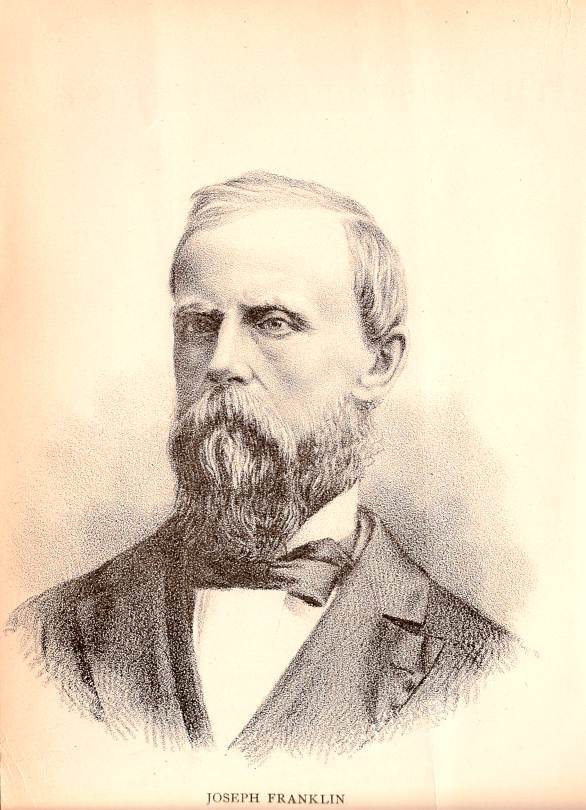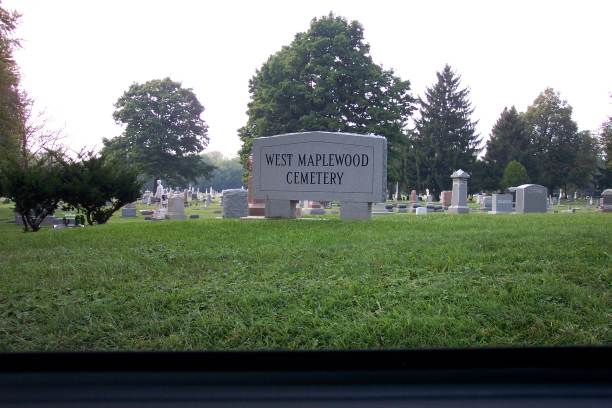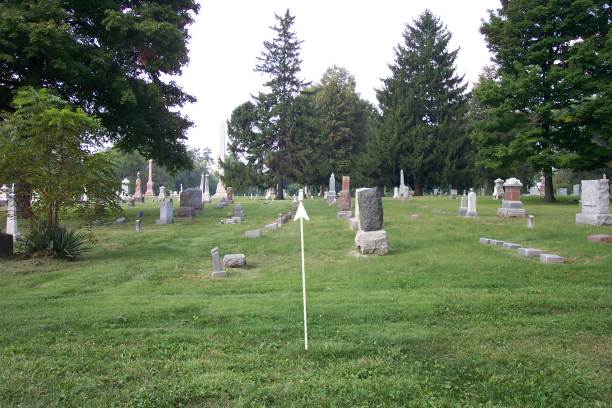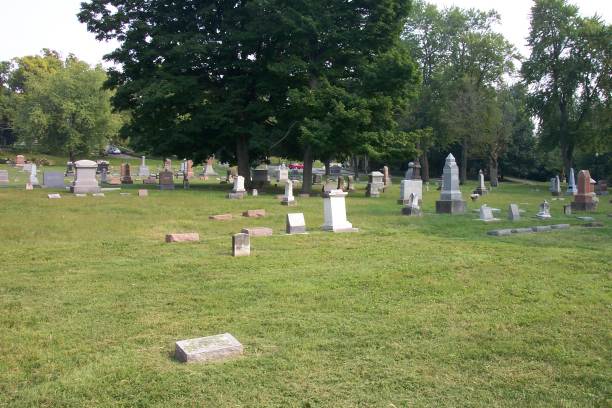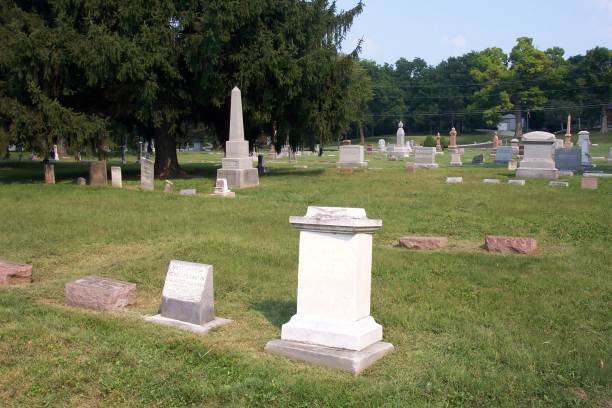Joseph Franklin
1834-1912
Biographical Sketch On The Life Of Joseph Franklin
There are few names in American history more widely known than the name of Franklin, and Benjamin Franklin, the philosopher and patriot, will never be forgotten.
In the history of the Disciples the name Franklin is an honored name, and Benjamin Franklin, the Christian preacher and untiring religious worker, fills no small place in the hearts of thousands of his brethren. Among his large family of children was Joseph Franklin, the subject of this sketch.
Joseph Franklin was born September 13, 1834, near Middletown, Henry County, Indiana. He attended such schools as the neighborhoods in which his father lived afforded, until his father purchased the Western Reformer and a small printing establishment, when Joseph went into the office and was taught to be a printer. In this office he worked four years, and then two years in a Cincinnati printing office. In 1851 his health failed, and he abandoned the printing office. One year was then spent in Fairview Academy, Rush County, Indiana, under Prof. A. R. Benton, now of Butler University. This and one year in Centerville Academy, before entering the printing office, summed up his school privileges, beyond the common schools of the neighborhoods where he lived. But even these privileges, added to good natural ability and studious habits, fitted him well for the business of teaching, upon which he then entered with enthusiasm and assured success.
In December, 1853, he was married to Miss Sarah E. Vanhook, a student in Wesleyan College, in Cincinnati, Ohio, and a teacher of four years' experience.
In the autumn of 1854 he moved to Warren County, Indiana, and began to preach, still teaching school about half of each year. Near the end of the year 1858 he went to Lafayette, Indiana, to preach for the church in that place. While here he held a public debate with I. M. Westfall, preacher in the Universalist church of Lafayette. It may be noticed in this connection that Mr. Franklin has held eight public discussions, as follows: One with a Presbyterian, one with a Methodist, one with a "Soul-Sleeper," two with Spiritualists, and three with Universalists.
In the spring of 1861 he moved to Covington, Kentucky, to preach for the church at that place; but the war coming on, demoralized everything, and, besides, his family had grown too large to live in a city on a minister's salary, such at least as was paid twenty-five years ago. He, therefore, in July, 1862, returned to Indiana, and settled at Anderson, where he has ever since resided. During his residence in Anderson he has taught school eleven years, teaching nine and ten months each year. For two years he was County Superintendent of schools. For eight of these years he conducted a private school, under the name of the "Anderson Graded and Normal School," in a house built by him for this purpose. In this school he had every year a class of young teachers numbering from fifteen to twenty-five. This labor, combined with more or less preaching through all these years, was too much for a constitution which was never rugged, and in the spring of 1877 Mr. Franklin's health failed him, and he gave up, hardly expecting to recover. But he rallied again, and traveled a year, holding protracted meetings in Canada; Kentucky, Tennessee, Illinois, Missouri, and Indiana. His health was in a great measure restored, and since that time he has been preaching for several churches near home, on the plan of monthly visits to each. He has a little place of eight and one-half acres in the suburbs of Anderson, on which he works about one-half of his time for health and for profit. His family consists of himself and his ever-faithful wife and his children, eleven of whom are living, the oldest child dying at the age of twelve years. In their childhood this large family of children depended very largely on the labors of their father for support; and to provide for them faithfully was his abiding inspiration during his experience as a school teacher.
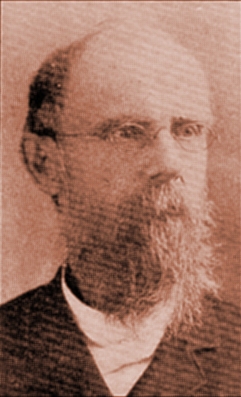 From the
foregoing it will be easily seen that Mr. Franklin has led a busy life, and has
eaten no "bread of idleness." It would not be supposed that one so devoted by
necessity to the "cares of this world," would have much time for purely literary
pursuits, although he might delight in them, as Mr. Franklin certainly did. But
for one so busy in other fields, he has written a good deal, much of which has
attracted the attention of the thoughtful and serious. For several years he was
a regular contributor to the columns of the American Christian Review.
For four years he conducted the "Educational Department" of the Anderson
Herald. He wrote the biography of his father, Benjamin Franklin, which was
all the book work he ever did.
From the
foregoing it will be easily seen that Mr. Franklin has led a busy life, and has
eaten no "bread of idleness." It would not be supposed that one so devoted by
necessity to the "cares of this world," would have much time for purely literary
pursuits, although he might delight in them, as Mr. Franklin certainly did. But
for one so busy in other fields, he has written a good deal, much of which has
attracted the attention of the thoughtful and serious. For several years he was
a regular contributor to the columns of the American Christian Review.
For four years he conducted the "Educational Department" of the Anderson
Herald. He wrote the biography of his father, Benjamin Franklin, which was
all the book work he ever did.
There is one fact of his life which deserves special mention. His school privileges, as already recorded, were quite limited, but by studying at home he was able to teach fully one year of the ordinary school course beyond what he studied at school.
Mr. Franklin is a manly man. Though not a "man of war," always "spoiling for a fight," he is a man of decided convictions, which he never fails to contend for with unflinching courage and intelligent firmness.
In character he is blameless, and through his life of fifty years, including a public life of a third of a century, no stain can be found upon his shield.
In his preaching he is calm and deliberate, though with enough vivacity and well selected thought to make him interesting, and the people hear him gladly.
In disposition he is modest and retiring. He is now at the golden summit of his prime, and the years of his greatest usefulness in the church of God are yet to come. With his evenly balanced mind and well-founded Christian character, there is little danger that he will forsake the "old paths" in which the "fathers" of the "current reformation" trod, unless he should find, upon due reflection and investigation, that the "old paths" are not the right paths. In such an event he would be found following his convictions, without fear or favor.
-F.M. Green, The Disciple Of Christ, January, 1886, pages 36,37
![]()
Directions To The Grave Of Joseph Franklin
Joseph Franklin was buried in Anderson, Indiana in the West Maplewood Cemetery. On I-69 take Exit 34 (Daleville/Chesterfield). Head west on West Main Street. (Hwy. 32). Go toward Anderson. Road changes names in Chesterfield to E. Main St. Continue through to W. Main St. Road will dead end into Hwy. 109. Turn left and immediately back to the right on University Blvd. Stay on University Blvd. until you turn right on Alexandria Pike. You will cross (E. Grand Avenue to the left and High St. to the right). You will see the cemetery on the left. Go into the first entrance into the cemetery (1st Drive). Before the obelisk on left SANSBERRY. See KENDALL, then YOUNG to the left. Follow line past YOUNG for four sections. Look for the white monument with a top that looks like a lectern with a Bible on it. Also buried in the plot is Joseph's father, Benjamin along with Joseph's mother Mary. Also Joseph's wife Sarah is buried there as well.
GPS Coordinates of the Franklin Family Plot
40°06'55.3"N 85°40'28.6"W
or D.d. 40.115350, -85.674600
Franklin Plot
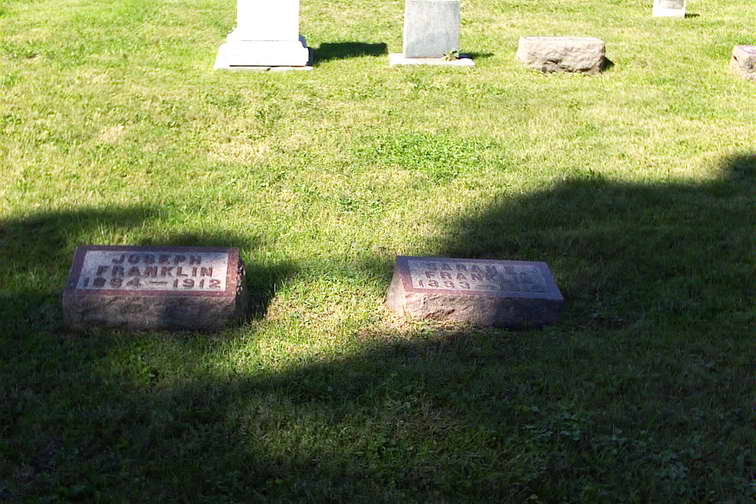
Sarah E.
Franklin
1833-1910
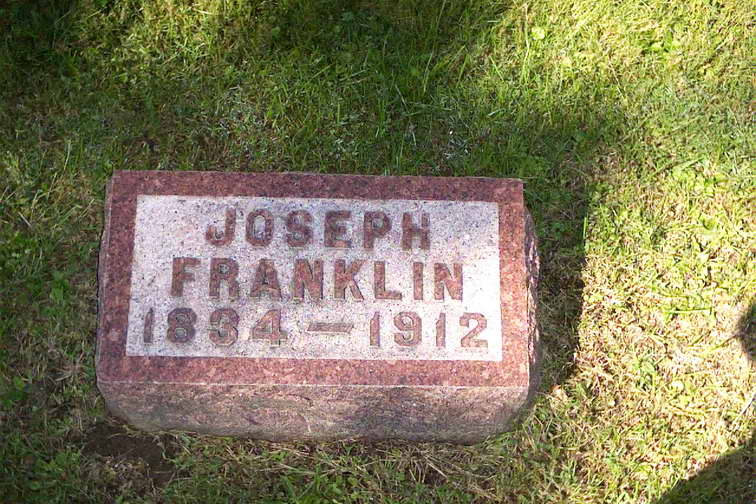
Joseph
Franklin
1834-1912
Special Thanks To Drew Kizer For Providing Pictures of Joseph Franklin's Monument
![]()
